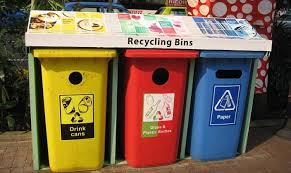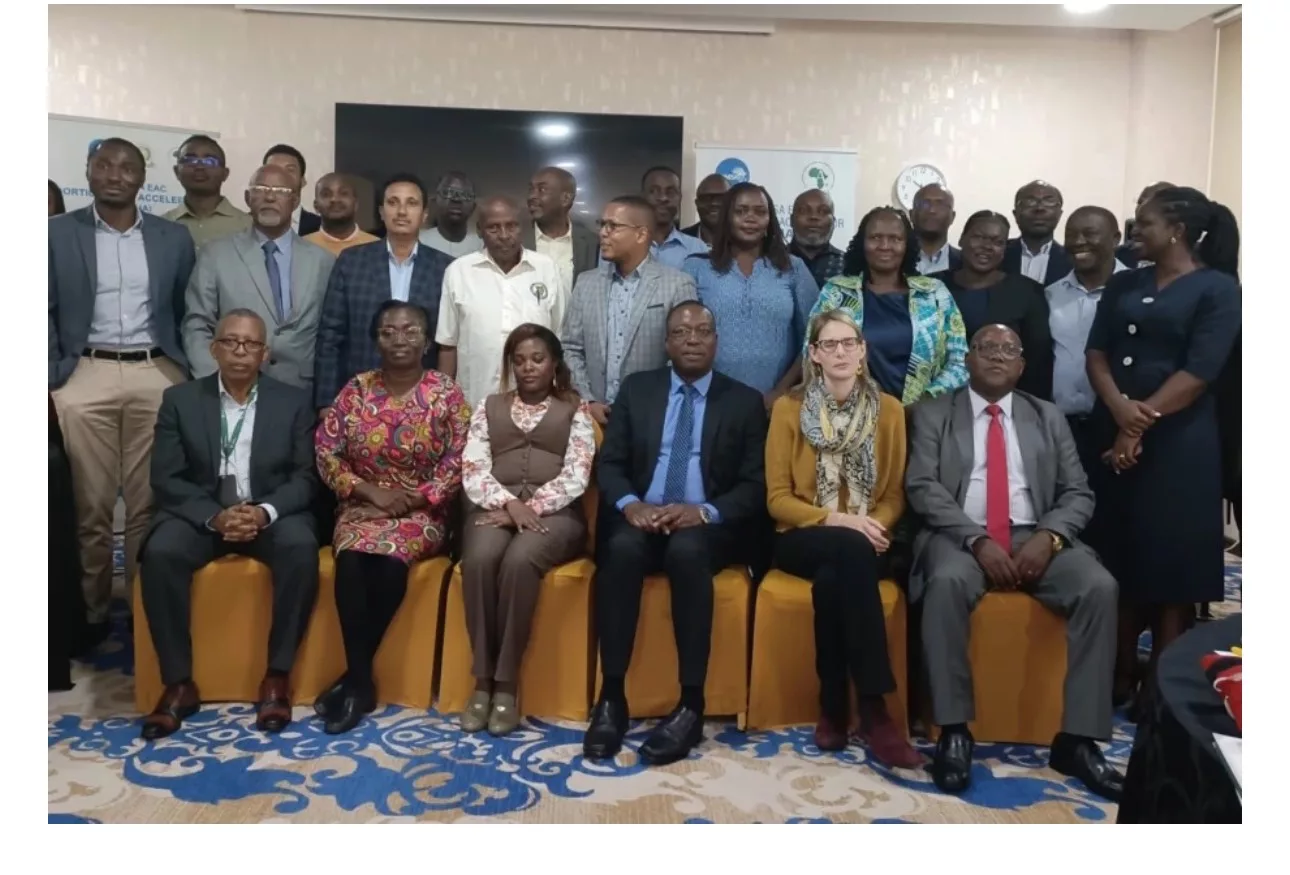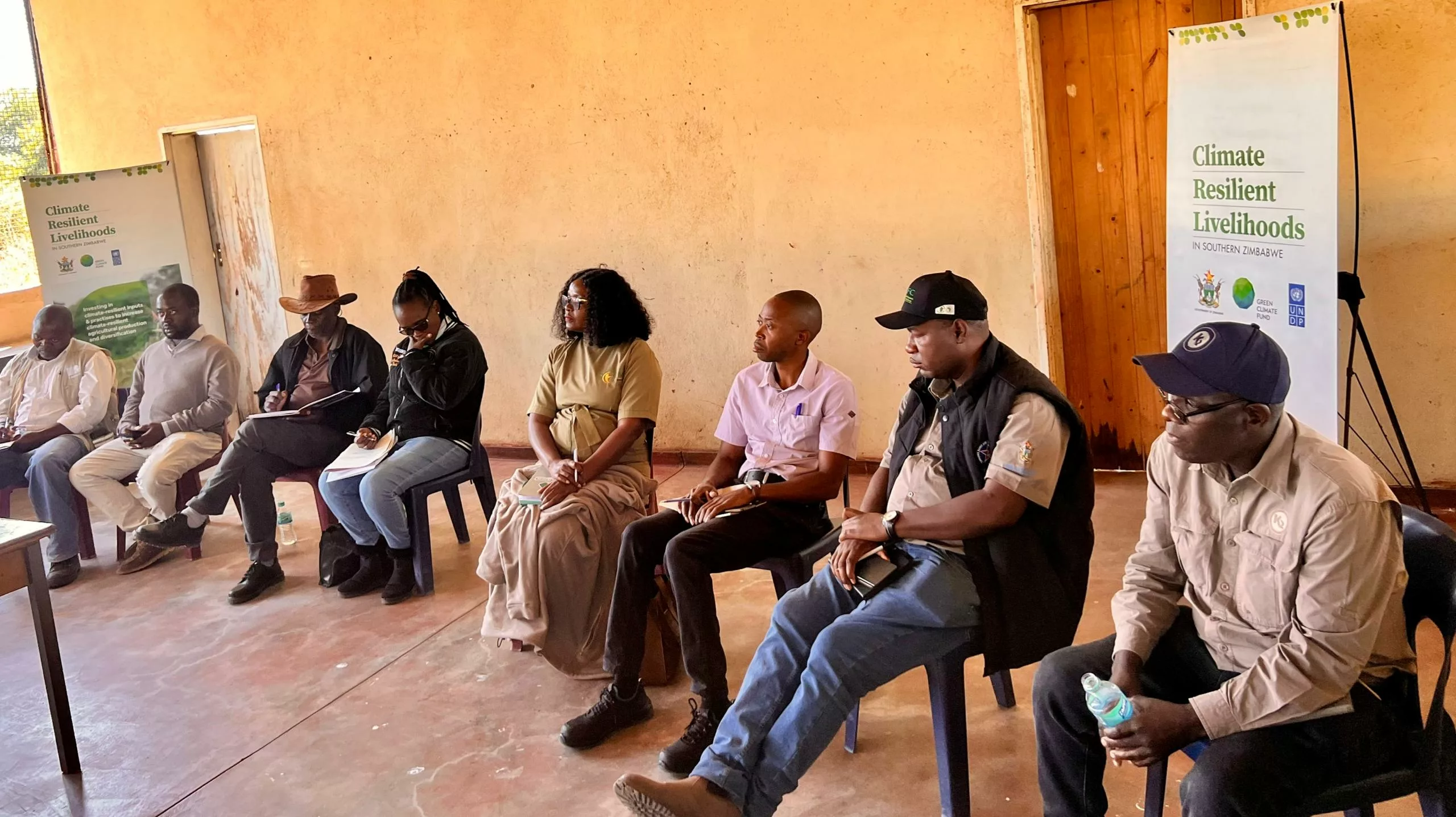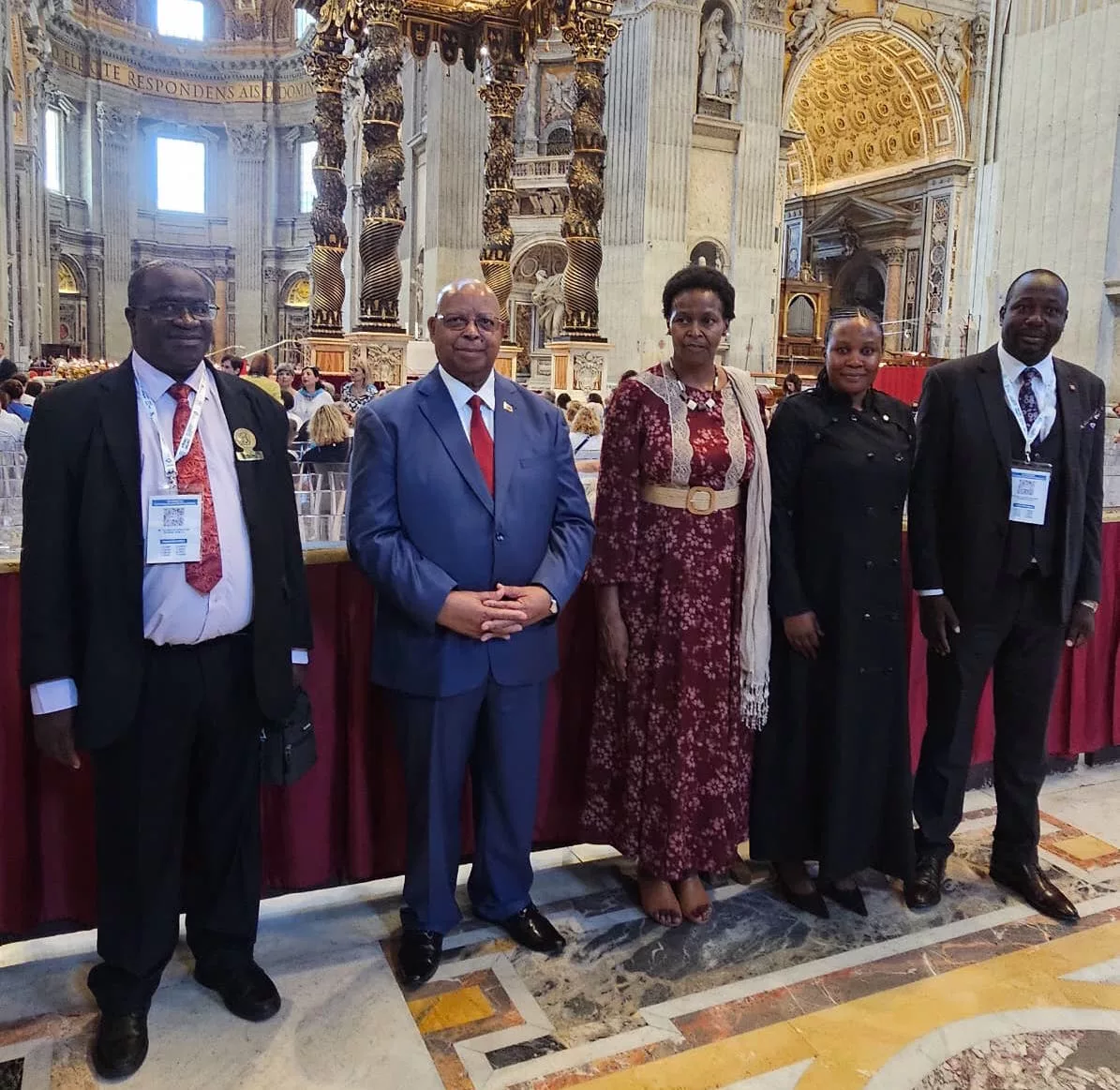|
Getting your Trinity Audio player ready...
|
Zimbabwe Children and Youth Position Paper on the Nationally Determined Contributions (NDCs) 3.0 (2025 – 2035)
Prepared by Cinderella Ndlovu and Eric Morgen Moyo
Rapporteurs: Linet Ndou, Natalie Gwatirisa, Shamiso Mucha
Introduction
The Nationally Determined Contributions (NDCs) are the core of the Paris Agreement and serve a critical role in determining the direction in which we are heading in addressing climate change. They articulate the ambitions of each, and every country that is party to the United Nations Framework Convention on Climate Change and the actions they will take to reduce greenhouse gas emissions as a nation. Zimbabwe, as a responsible and dedicated global partner in the fight against climate change, has not lagged in committing to developing and following up on a relatively ambitious NDC policy framework.
However, upon noting the gaps in the inclusion of children and youth in the NDC’s formulation process as well as their participation as key players in strategies articulated in it, the government through the Ministry of Environment, Climate, and Wildlife has prioritised their participation since the development of the 2020-2025 NDCs.
Youth-led climate and environmental action organisations; development partners such as UNICEF-Zimbabwe; children through schools; and youth in their diversity, have participated in a national consultative workshop to contribute to the development of an inclusive and more ambitious NDCs policy for the period beginning 2025 up to 2035. The key outcome of the workshop is a position paper that clearly captures the perspectives of young people on what the upcoming NDC policy should look like.
The current NDCs
In its revised NDCs submitted in 2021, Zimbabwe intends to reduce greenhouse gas (GHG) emissions by 40% per capita across all sectors of the economy below the projected business-as-usual scenario by 2030. According to research conducted by UNICEF, on the Child-sensitivity of NDCs of countries with High to Extremely High Children’s Climate Risk, Zimbabwe’s NDCs fell under category B1, with category A as the most desirable category to obtain, and category C as the worst.
This categorization indicates that there is room for improvement and the current phase presents an opportunity to develop a more ambitious and child-sensitive NDC policy. To achieve this, young people highlight that children and youth-centered actions and strategies need to be taken in key economic sectors which include the Energy Sector; Waste Sector; Industrial Processes and Products Use (IPPU) Sector; as well as the Agriculture, Forestry, and other Land Uses (AFOLU) Sector.
The Energy Sector
The energy sector, while being one of the biggest contributors to emissions in the country, is a very important sector to drive economic growth, a vital aspect of children’s and youth’s economic development. The participation of youth in this sector presents not only economic opportunities but also a means of enhancing their adaptation to the direct impacts of climate change on electricity access, education, and social protection.
To enhance their participation, children, and youth emphasize that the NDCs should clearly highlight how education and capacity-building programs focused on green energy skills in fields such as solar energy technology development, sustainable lithium-lithium battery development, micro hydro-electricity technologies, wind energy technology, and geothermal energy harnessing, amongst others will be invested on. This can be done through strengthening primary and secondary education curricula on climate change learning, as well as strengthening colleges and universities on subjects related to green energy technologies. Apart from mainstream education institutions, youth see investment in specialized training programs focused on green tech skills capacitation as critical. These can be funded through private and public partnerships (PPPs) and be tailor-made to lead to investments in green energy projects run by youth.
Investments and targeted financing on green energy businesses run by youth – a key enabler that young people see as vital to ensuring that our NDCs 3.0 are inclusive and just. This can be coupled with youth-friendly loan schemes and grants towards mitigation projects within the green energy small and medium enterprises (SMEs) sector. Young people also highlight the importance of incorporating in our NDCs 3.0 a strategy on investing towards the development of a robust e-mobility infrastructure for easy adoption of fully electric vehicles (EVs). A goal to target more than 50% (or 750 000)2 of all vehicles used in Zimbabwe to be EVs replacing currently used fossil fuel-dependent vehicles by 2035 is seen as achievable and important in ensuring that while we meet our NDCs target we also are not left behind by the fourth industrial revolution as a country. This can be well supported by the National Policy Roadmap for Electric Mobility in Zimbabwe which clearly highlights the needs and type of costs to be looked at for these EVs to be adopted.
The Waste Sector
The gradual increase in waste generated in Zimbabwe due to several factors including population growth and expanding urban areas, calls for significant actions towards managing GHG emissions from the waste sector. Children and youth do recognise the potentially lucrative nature of the waste sector as well as their role in sustainable waste management to reduce emissions through leading initiatives such as solid waste recycling, waste to technology (WtE) initiatives, composting, and landfill diversion strategies amongst others.
To enhance their participation in the NDC’s strategies aimed towards mitigation within this sector, public education campaigns on sustainable consumption targeting young people and awareness programs focused on reducing the volume of waste disposed per capita are the first key actions to be highlighted in the NDCs 3.0.
This should be coupled with engaging children and youth in all waste management decision-making platforms as well as promoting local initiatives that promote environmental sustainability. Also, encouraging public and private sectors to adopt green procurement policies that prioritize environmentally friendly materials and products is key. This should also be linked to the implementation of extended producer responsibility (EPR) schemes to incentivize manufacturers to design products with longevity and recyclability.
The next port of call identified by children and youth to be highlighted in the NDCs 3.0 is the prioritization of waste management infrastructure development in especially the country’s cities and towns. Investment in new or upgraded recycling and sustainable waste processing facilities to improve processing capacity and efficiency, as well as waste collection efficiency from residential, commercial, and industrial areas, is a key strategy that can drive a robust NDCs policy. Linked to this strategy is the call for investment in, and deployment of waste-to-energy technologies (WtE) that target children and youth as key beneficiaries across all provinces through PPPs. This can include landfill gas capture technologies and the installation of systems to capture and utilize methane emissions from landfills, turning a waste product into a source of energy.
Supporting research and development of innovative waste management technologies and practices that can reduce emissions is a critical factor that can contribute to the achievement of the NDCs targets. Research should also be extended to enhance understanding of the impacts of waste mismanagement and improper disposal on children as this has a bearing on their health and capacity to adapt to climate change.
Agriculture, Forestry, and other land uses (AFOLU) Sector
The Agriculture, Forestry, and Other Land Use (AFOLU) sector plays a crucial role in Zimbabwe’s climate adaptation and mitigation efforts. However, youth and children remain underrepresented in decision-making processes, land ownership, and climate-smart initiatives. To ensure sustainable land management and emissions reduction in the AFOLU sector, Zimbabwe’s Nationally Determined Contributions (NDCs) must actively integrate youth and children through targeted policies, education, and financial support.
Children and youth highlighted the following issues in the AFOLU sector for consideration in NDC 3.0: the expansion of youth access to land & natural resources; subsidization of youth-led land and forests-based projects focused on reducing emissions within the AFOLU sector; and ensuring children & youth are key beneficiaries in the ownership of forest plantations; are key enablers of an inclusive NDC implementation. Also, initiatives to promote children’s participation in projects focused on increasing natural forests, such as the establishment of in-school and community nurseries, and children’s tree ownership programs are essential to the achievement of the NDCs targets.
Another strategy highlighted by young people to be considered in the NDCs 3.0 is aimed at reducing the number of households that use firewood for their energy needs. The introduction of a program targeting 100,000 households in communities that are heavily reliant on firewood to use alternative energy sources such as tsotso stoves, sawdust stoves, biogas, and solar can significantly contribute to a reduction in emissions.
With veld fires being one of the major drivers of emissions in the AFOLU sector, educational and community sensitization programs on the prevention of veld fires are key. These programs should target schools and provide practical lessons on veld fire prevention.
The NDCs 3.0 should also emphasize the prioritization of Green Skills training programs targeting children and youth to enhance their participation in income-generating climate-smart practices within the AFOLU sector. These should include training on skills ranging from Climate Smart Agriculture, agroforestry and agroecology, green architecture, geoinformatics, and carbon markets amongst others. This also has to be linked to the promotion of youth participation in carbon marketing projects within the AFOLU sector through non-restrictive policies deliberately targeting young people.
Also key to a child and youth-inclusive NDCs 3.0 are investments in the development of climate-smart cities and urban settlements. Climate-proofing cities increase resilience and mitigate disaster risks, resulting in the protection of children as they are the most vulnerable to climate hazards.
Industrial Processes and Products Sector
The Industrial Processes and Product Use (IPPU) sector is a significant contributor to Zimbabwe’s greenhouse gas (GHG) emissions. As the country transitions to a low-carbon economy, it is essential to ensure that youth and children are actively engaged in shaping and implementing climate-smart industrial policies. The youths highlighted their limited involvement in shaping industrial emissions reduction strategies. To create more opportunities youths advocated for the promotion of Green Skills Development for Sustainable Industries through strengthening learning institutions to offer green skills development programs aligned with industrial climate action.
Children and Youth Adaptation Needs
Climate change presents severe adaptation challenges, particularly for young people and children, who are among the most vulnerable to climate-induced disasters. Zimbabwe’s Nationally Determined Contributions (NDCs) must integrate youth and children in a meaningful and action-oriented manner, ensuring their perspectives shape national adaptation strategies. Children and youth have called for the establishment of a National Children and Youth Board for NDCs, which will ensure their active participation at all stages of the NDC process. This board should be formally recognized and integrated into national consultation frameworks, working alongside climate officers, Agritex officers, and youth desks in government agencies. Given the limited youth participation in adaptation planning, children and youth have proposed the deployment of community monitors to train, share information, and mobilize grassroots participation in NDC consultations.
This initiative will help identify and build the capacity of community monitors, ensuring their training is tailored to local contexts. Additionally, children and youth emphasized the need to utilize community radios, agricultural fairs, and RDC roadshows to ensure widespread youth engagement. A key concern raised by young people is the lack of targeted funding for youth and children in climate adaptation initiatives. They highlighted the need for dedicated budget allocations to support climate adaptation projects that directly benefit youth, particularly those affected by climate disasters. These targeted funds will also facilitate the adoption of climate-resilient agricultural technologies, strengthening community resilience. Young people also highlighted the challenge of limited access to assets, particularly land and financial resources for young women. They emphasized the need to support youth-led adaptation projects, such as small livestock farming and community gardens, to enhance asset accumulation and economic empowerment.
Furthermore, limited access to localized weather forecasts has created knowledge gaps in climate change and disaster preparedness. To address this, young people proposed collaboration with the Climate Change Department, the Meteorological Services Department, and the Department of Civil Protection to implement community-based Disaster Risk Reduction (DRR) programs and school climate awareness campaigns. These efforts should support information dissemination through schools, youth networks, and digital platforms, ensuring both in-school and out-of-school youth have access to critical climate knowledge. As part of efforts to tackle urban youth poverty, children and youth have called for investment in urban and peri-urban agriculture and green enterprises to create sustainable employment opportunities for young people.
Conclusion
To meaningfully integrate youth and children in all of Zimbabwe’s NDC sectors, committing to evidence-based mitigation and adaptation actions that prioritize children & youth well-being is vital. It is also essential to institutionalize youth representation, expand access to resources and information, and invest in youth and child-led climate mitigation and adaptation projects. By adopting these solutions, Zimbabwe can strengthen its climate resilience while ensuring that young people are active agents of change in national climate action efforts.






